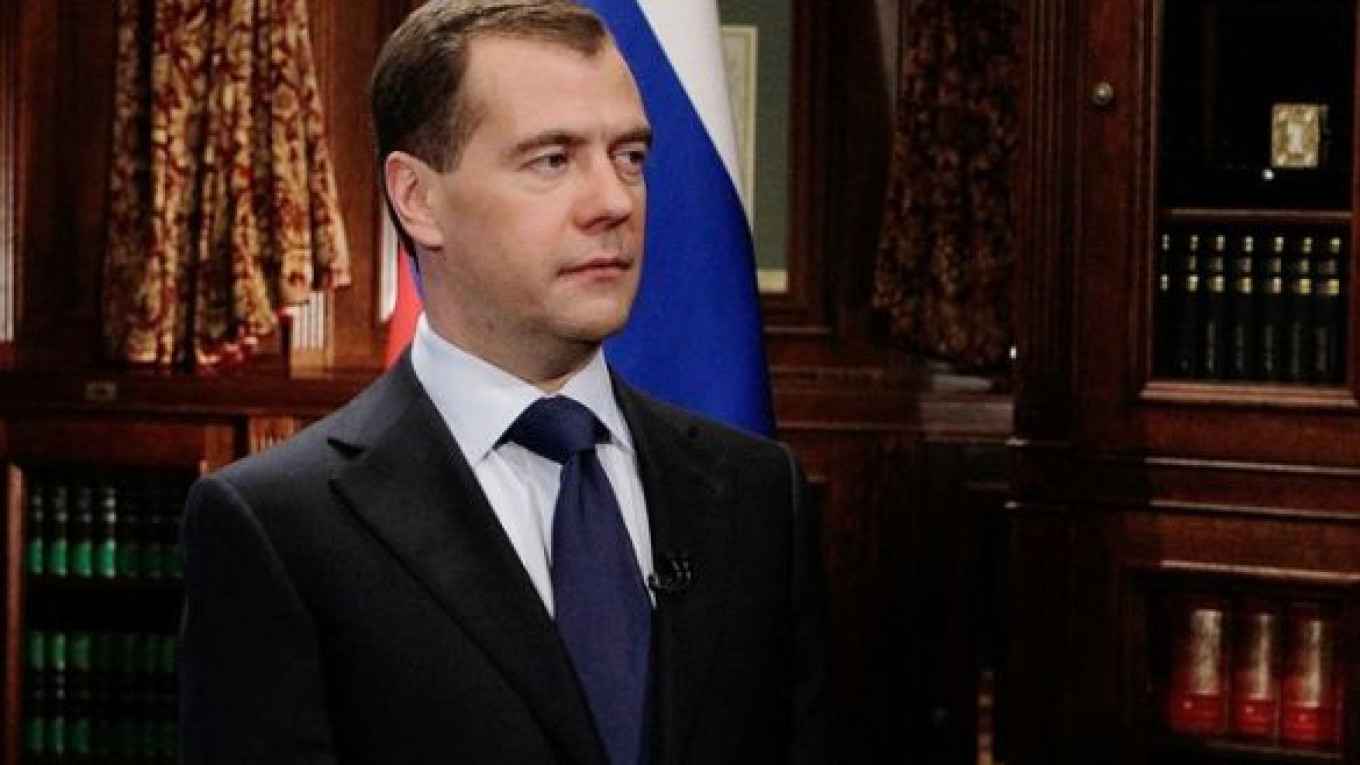Agriculture Minister Nikolai Fyodorov on Tuesday asked for an additional $1.4 billion in farming subsidies this year, as grain prices are growing and WTO commitments are taking effect.
Total federal spending on supporting farmers was initially projected at 158 billion rubles ($5.3 billion) this year.
Following a less-than-spectacular crop last year, grain prices surged 30 percent in recent months, which proportionately made animal fodder more expensive, Fyodorov said.
Part of the reason Fyodorov is seeking more money for the sector is the government's decision to bring its farm support in line with the WTO rules, he said.
The move means that the overall level of subsidies is dropping to no more than 300 rubles a hectare from the pre-WTO number of 500 rubles a hectare, he said.
"Animal farmers have crossed the line into loss-making," he said at a meeting Prime Minister Dmitry Medvedev held at his Gorki residence to discuss the grain market.
After Russia joined the World Trade Organization in August, the government decided to end its control over the prices of fertilizers and fuel, introducing a per-hectare subsidy instead.
Asking for the 42 billion rubles of additional support, Fyodorov said its biggest share, or 15 billion rubles, would make up for the grain price increase.
To make things worse, pork and poultry prices did just the opposite, dropping 35 percent in the second half of last year, he said.
Fyodorov said producers of eggs, poultry and pork deserve the most attention.
"These areas are the most socially sensitive, and they have the biggest effect on the sentiments of consumers," he said.
The rest of the support package would mostly subsidize loans.
Medvedev responded to the proposal by saying, "I heard you," according to a transcript of the meeting on the Cabinet's website.
Medvedev also said that in a bid to contain prices, the government will expand grain sales from the state reserves by starting them in western Russia. The sales have been ongoing in the country's eastern parts.
In another effort to support the sector, Medvedev ordered the government to make sure farmers could afford fuel during the sowing season. Energy Minister Alexander Novak said fuel prices would rise at least 13 percent by the end of the year.
Fyodorov said Russia needs to harvest 95 million metric tons this year to retain its export potential.
Russia has exported 13.5 million tons since the start of July, down from 19.4 million tons in the same period the previous year.
Overall exports will amount to 14.8 million tons in the agricultural year that started July 1, Fyodorov said.
Even with the reduced exports, Fyodorov expressed concern that Russia's grain reserves are getting too low. They will reach 7.7 million tons by July, and common practice has been to have at least 10 million tons in store, he said.
Contact the author at [email protected]
Related articles:
A Message from The Moscow Times:
Dear readers,
We are facing unprecedented challenges. Russia's Prosecutor General's Office has designated The Moscow Times as an "undesirable" organization, criminalizing our work and putting our staff at risk of prosecution. This follows our earlier unjust labeling as a "foreign agent."
These actions are direct attempts to silence independent journalism in Russia. The authorities claim our work "discredits the decisions of the Russian leadership." We see things differently: we strive to provide accurate, unbiased reporting on Russia.
We, the journalists of The Moscow Times, refuse to be silenced. But to continue our work, we need your help.
Your support, no matter how small, makes a world of difference. If you can, please support us monthly starting from just $2. It's quick to set up, and every contribution makes a significant impact.
By supporting The Moscow Times, you're defending open, independent journalism in the face of repression. Thank you for standing with us.
Remind me later.


